Theresa May confirms taxpayers will fund 'Brexit dividend' cash boost for NHS
Theresa May has confirmed that taxes will go up to fund an a new £384m-a-week cash injection for the NHS.
It comes as her claim that a so-called ‘Brexit dividend’ will help fund the 3.4% increase in spending was widely rubbished – including by members of her own party.
In a speech at London’s Royal Free Hospital, she failed to clarify exactly where the extra money would come from, and repeated her claim that part of the health budget increase will be funded by cash that otherwise would have been paid to the EU.

She said: ‘Some of the extra funding I am promising today will come from using the money we will no longer spend on our annual membership subscription to the European Union after we have left.’
But she added that the scale of the Government’s ambition went beyond that: ‘So across the nation, taxpayers will have to contribute a bit more in a fair and balanced way to support the NHS we all use.’
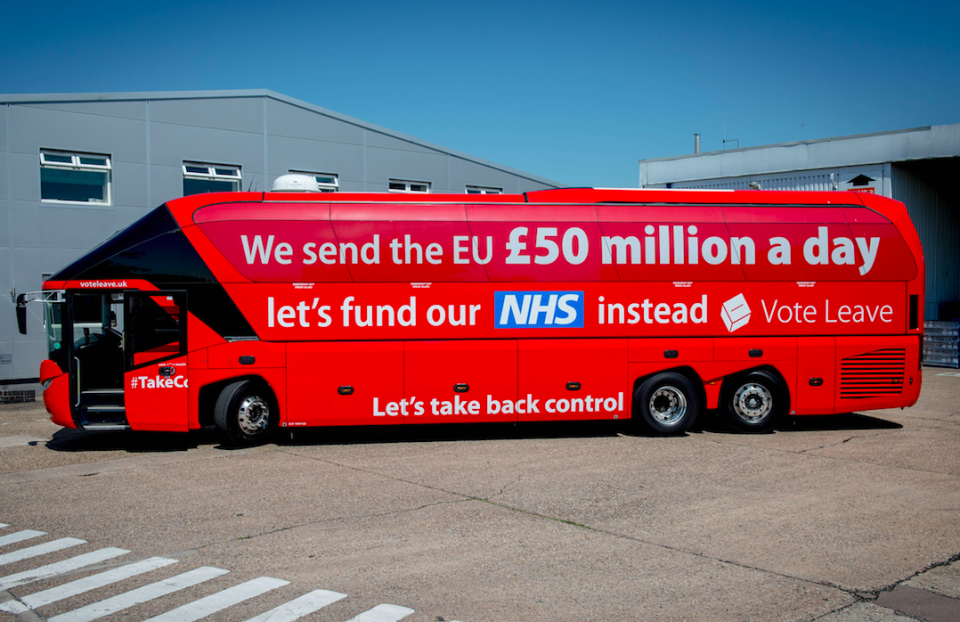
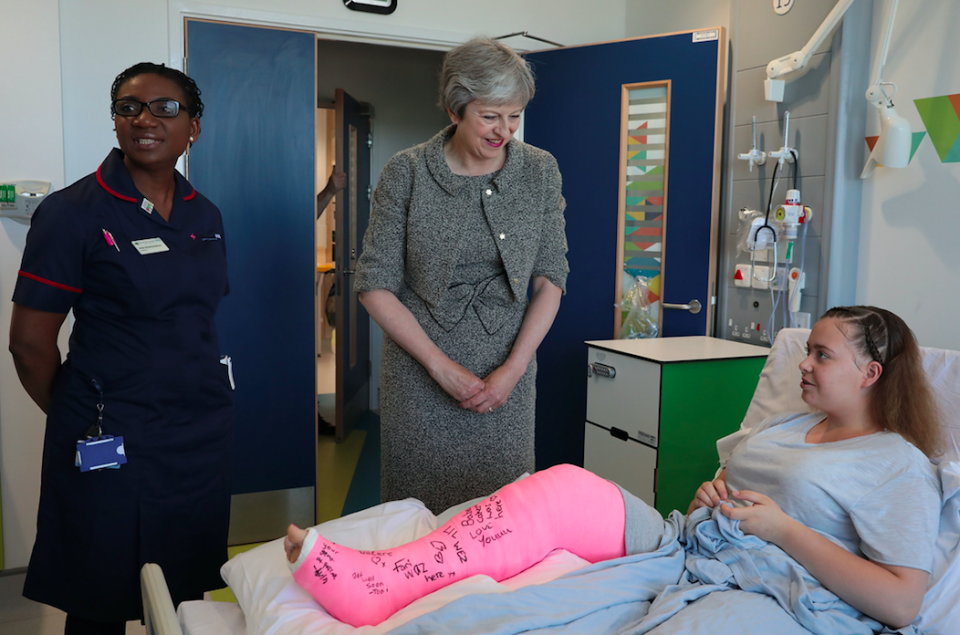
But Paul Johnson, the director of the Institute for Fiscal Studies, ridiculed the idea of a cash boost resulting from Brexit when the PM raised the idea this weekend.
He also said that the Government has already accepted that leaving the EU will not result in a cash injection for the economy.
Extra spending can't be funded by Brexit dividend.
1) Govt has accepted Brexit will *weaken* public finances by £15bn pa
2) Financial settlement with EU plus commitments to replace EU funding already uses up all of our EU contributions in 2022
There is no Brexit dividend
— Paul Johnson (@PJTheEconomist) June 17, 2018
The IFS released a statement today trashing the PM’s claims of a post-Brexit windfall.
‘First, and most importantly, according to the official forecasts (accepted by the government), Brexit worsens rather than improves the public finances,’ it reads.
‘In November 2016, the Office for Budget Responsibility (OBR, the government’s official forecaster) estimated that, due to economic growth being forecast to be lower than it would otherwise have been, the Brexit vote reduced tax forecast tax revenues to the tune of £15 billion in 2020–21.
‘This outweighs the UK’s net contribution to the EU by a substantial margin, and means less, rather than more money for the NHS and other services.’
BREXIT DEVELOPMENTS – MORE ON YAHOO UK:
Article 49: What is it and how can it reverse Brexit after the UK leaves the EU?
How the ‘Brussels Effect’ will continue to run Britain’s economy long after Brexit
How will Brexit affect your finances in 2018?
Facebook widens probe into Russian influence on Brexit vote
Second vote not undemocratic, Irish PM says on Brexit
In her speech, the PM confirmed some tax rises would support a £20.5 billion-a-year boost to the NHS budget, but insisted they will be ‘fair and balanced’.
She said the Government would take a ‘responsible’ approach to the plan, which will see an extra £394 million a week going to the NHS in 2023/24.
Mrs May acknowledged that ‘despite more funding, more doctors and more nurses, and great progress on treatments, our NHS is under strain’ as it copes with an ageing population and changing health challenges.
She said: ‘We cannot continue to put a sticking plaster on the NHS budget each year. So we will do more than simply give the NHS a one-off injection of cash.
‘Under our plan, NHS funding will grow on average by 3.4% in real terms each year from 2019/20 to 2023/24.
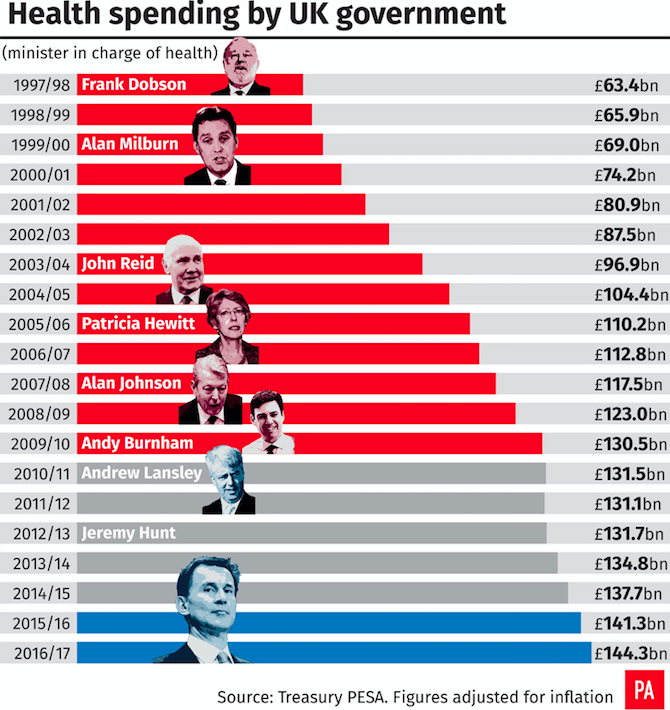
‘We will also provide an additional £1.25 billion each year to cover a specific pensions pressure.
‘By 2023/24 the NHS England budget will increase by £20.5 billion in real terms compared with today. That means it will be £394 million a week higher in real terms.
‘So the NHS will be growing significantly faster than the economy as a whole, reflecting the fact that the NHS is this Government’s number one spending priority.’
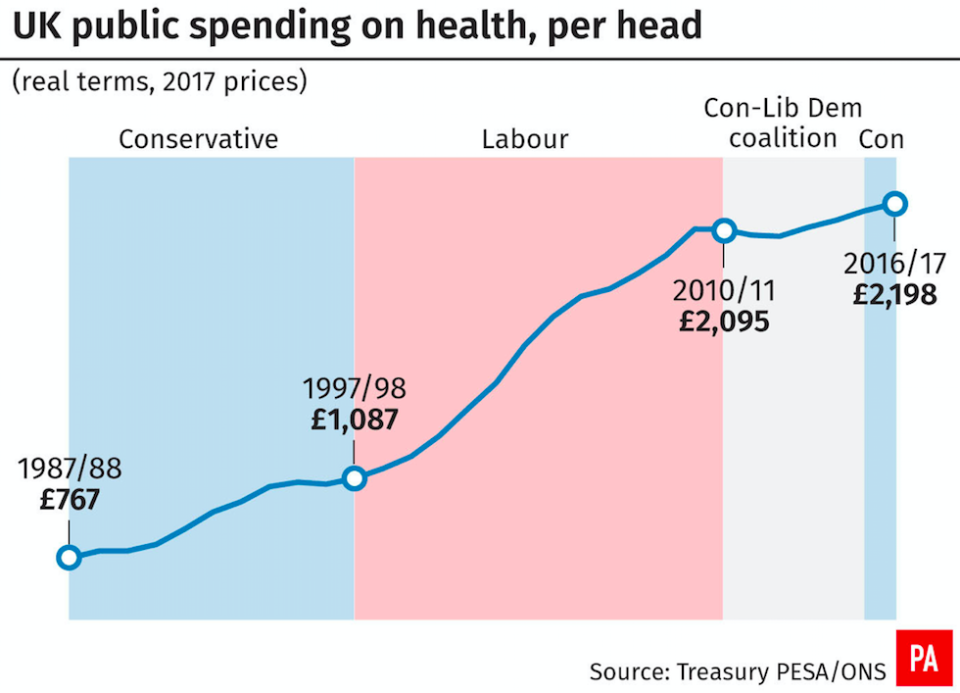
Health Secretary Jeremy Hunt indicated that separate plans being drawn up to increase funding for social care could include measures to encourage people to save more to cover needs in their old age.
He said ministers ‘happen not to agree with the IFS views’, even though they are based on the projections of the Government’s own Office for Budget Responsibility.
Labour, which said it would match the Tory funding proposals if in power, called on Mrs May to set out details of how her plan would be paid for.
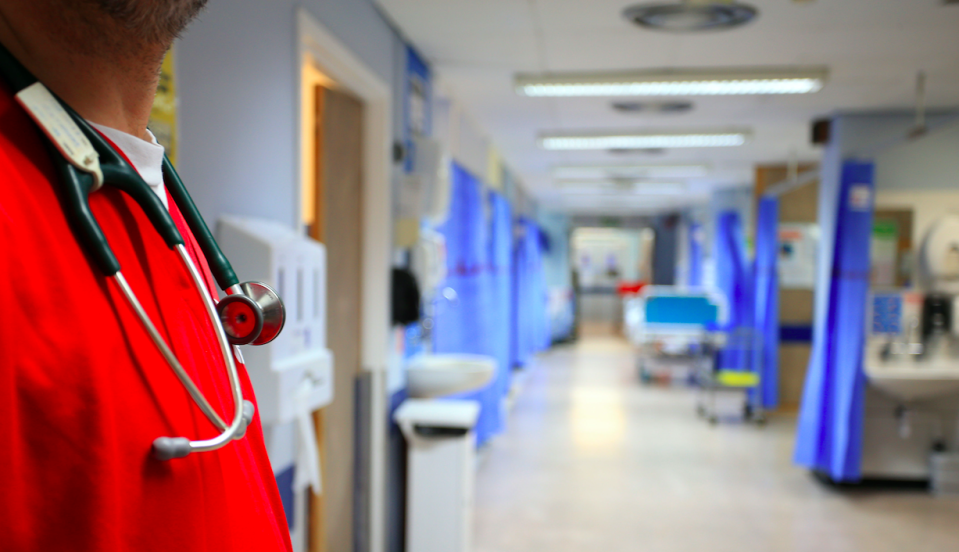
Shadow chancellor John McDonnell told BBC Radio 4’s Today programme: ‘We need to have confidence in what’s being said. It’s all well and good making an announcement like this and trying to hit the headlines, but to be credible you have to say where the money’s coming from. We certainly haven’t seen that.
‘The speculation about where it’s coming from – particularly the ‘Brexit dividend’ – is just not credible, as far as many commentators are saying. And we still haven’t addressed social care.’
Labour backbencher David Lammy described the claims of a Brexit dividend as ‘Horlicks’.
He added to BBC’s Westminster Hour: ‘This is all pie in the sky. There is no Brexit dividend.’

 Yahoo News
Yahoo News 

